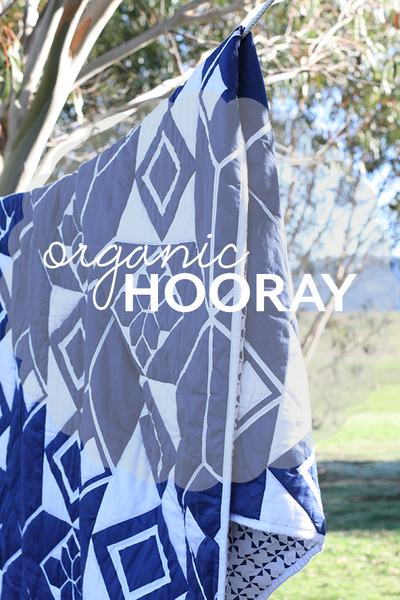Why organic?
Why organic? Why not! Things need to be bought. They do. They need to be coveted, and lingered over, and exchanged for money and treated as a prized possession. However our desire for new and beautiful products doesn’t have to mean that the products we love and shared in our home are produced using harmful processes to people or the environment.
Rather than sit down and write out a text book explanation of the ins and outs of the cotton industry let me give you a quick snapshot (and not even close to the full picture on all the issues and solutions) on why I use organic cotton for Oh Mabel.
The not so crash hot news on the cotton industry
Conventional Cotton:
- One of the ‘thirstiest’ crops in the world. 8506 litres of water is used to produce 1 kg of cotton lint
- 25 percent of the world's insecticides and more than 10 percent of the world's pesticides is used on cotton crops to eradicate pests
- WHO estimates that approximately 20,000 farmers die each year from pesticide related conditions
- Pesticides can remain as a residue in cotton threads and have been known to cause skin irritations, rashes, headaches and dizziness
- These harmful chemicals also go on to harm the surrounding habitat and eco-systems due to run off
- Poor working conditions throughout the farming and manufacturing processes including child and illegal immigrant workers which extends through to the unregulated textile operators – and we’ve all seen footage of the condition of some textile factories which also use child and slave labour
Ah, the cute little cotton bud. Who knew you could turn into such an environmental and social villain!
No need to fear though, there is change in the wind which you can be a part of when buying organic cotton products such as Oh Mabel.
The Good News
(please note that when referring to organic cotton I am referring to organic cotton that has been certified by the Global Organic Textile Standard - GOTS - or other credible certification body)
Certified Organic Cotton
When certified, the process of the humble cotton bud from seed to t-shirt (or doona cover!) is highly regulated to ensure:
- Farms are provided with education and support to implement alternative farming practices to reduce the use of pesticides on crops
- Better farm practices ensures not only water efficiencies but also healthier soil and subsequent water run off which benefits the surrounding habitat and the local communities
- The final cotton product is clean of all pesticides and other harmful chemicals which in turn provides health benefits to us
- Use of organic cotton has been known to alleviate skin and breathing conditions for those who have suffered previously
- Certified cotton standards govern the operation of the textile factories who produce products from the organic cotton. This means work and pay conditions are regulated and meet fair trade laws
Hooray!
Sadly though only one percent of all cotton products is made up of certified organic cotton. I choose to produce Oh Mabel using organic cotton to not only pass on the lovely benefits to you as a consumer but also to play a part in the change to sustainable manufacturing processes. I hope you notice and enjoy the difference in sleeping with organic bed linen. And maybe one day, in future generations, organic cotton processes may become the standard in farming and textile industries.
Until then, enjoy dressing your dreams and sleeping softly with Oh Mabel bed linen.

